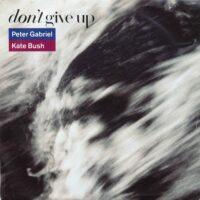
It’s hard to stay optimistic in radio. Broadcasters are dealing with a steady stream of loss and the contraction of the business on an almost daily basis. The trades regularly report heritage FMs being sold out of the radio mainstream and sometimes heritage AMs simply being shut down. Those trade publications are disappearing themselves, and so are other parts of the radio infrastructure around them.
We are seeing a steady stream of retirements from radio each week. Some are the programmers responsible for the most interesting stations of recent years. KDRI (The Drive) Tucson, Ariz.’s Bobby Rich earlier this year; WRME (Me-TV FM) Chicago’s Rick O’Dell this week. Retirements should be good news that we can celebrate with the broadcasters who earned them. It’s harder when you know that many longtime managers will be replaced by somebody assuming their duties as their second or third job from hundreds of miles away.
And there are the friends and colleagues we are losing altogether, something brought home by the recent deaths of both Kevin West and Kevin Fleming last week.
Fleming was a programmer, and later label executive, who I’ve known since I was inputting R&B radio playlists for Radio & Records forty years ago. In recent years, he was CEO of a trade publication, The Urban Buzz.
West was a college radio friend who I had reconnected with in recent years. By then, he was PD/morning host of N/T WGOW Chattanooga, Tenn. He was also headed to Afghanistan because of a second career in the Naval Reserve. A few months ago, he retired from radio to become the public information officer for the Chattanooga Police.
 Kevin Fleming fought a very public battle with pancreatic cancer until his death Sept. 21 at age 65. Kevin West died suddenly on Sept. 18 at age 62. Fleming’s loss I had been able to gird for; West’s was not just seemingly healthy but still in fighting shape. Both Fleming and West were survived by parents, another sadness.
Kevin Fleming fought a very public battle with pancreatic cancer until his death Sept. 21 at age 65. Kevin West died suddenly on Sept. 18 at age 62. Fleming’s loss I had been able to gird for; West’s was not just seemingly healthy but still in fighting shape. Both Fleming and West were survived by parents, another sadness.
We deal these personal and professional losses amidst all the other challenges of a divided, COVID-era world. Those who see a path forward for radio and still care about the business often feel like their stations and careers are in the hands of owners who seem to no longer care in the same way, but are really just doing what they can to stay afloat and putting a brave face on it. The last decade has often seemed like a choice between denial and despair.
It’s hard for me to pull off, too. But when I can, I’d rather opt for determination. Here’s some thoughts on how to stay optimistic.
Be secure in radio’s value to the audience. Radio is struggling through a platform problem as much as a product problem; trying to figure out what a 1980 AM-to-FM music radio transition should look like. When that happens, I feel confident that even the generation that didn’t grow up enamored of radio will be a viable audience. Nothing was less seemingly relevant than the screaming CHR of “Hot Hits” WCAU-FM Philadelphia in 1981, and yet that station inspired both a new generation of broadcasters and Top 40 fans.
“There will always be an audience for what radio people do, even when the platform becomes something else,” writes WCBS-FM New York’s Dave Stewart. “Let’s say the worst happens and radio as we know it fades away. Someday, some teens will say ‘hey, wouldn’t it be great if we could listen to these songs together with our friends at the same time?’ Then another will say ‘it would be even better if we could talk about the songs too,’” says Integr8 Research’s Matt Bailey.
Find the radio that makes you happy. “I continue to be inspired by talent and stations that are not cookie-cutter. There’s only one Greg Beharrell, Jacky BamBam or Radio Madison,” says Black Diamond Broadcasting’s Guy Dark. For Keith Berman, it’s “listening to radio from other countries.” I find inspiration in the UK’s BBC Radio 1 continuing to spotlight its on-air cast of dozens, but also in the small markets that carry on local radio even as larger broadcasters struggle, including this week’s story from Delilah’s small-market standalone AM.
Find the music that makes you happy. Olivia Rodrigo’s Guts is a reminder that there is still uptempo pop music of the sort that radio thrives on, but so are new albums Americans may not have heard from Charlotte Cardin and Maisie Peters. Finding and assimilating new music has been a challenge to radio in the streaming era. It’s one reason that I’ve been sharing my Top 40 playlist so much recently.
Listen to college radio. Recently, I came across a college station offering a mainstream format and happened upon the holy grail, the young broadcaster who, despite the requisite stiffness, sounded like he knew how to talk on the radio and wanted to. It’s a reminder that there is a next generation. And College Radio Day is this Friday. (You can also donate to College Radio Day here.) And a next generation is indeed moving into broadcast radio as Radioinsight’s Lance Venta saw at Morning Show Bootcamp.
Have a birthday. A surprising thing happened on my birthday earlier this month. By mid-afternoon, I was newly reminded not just of the contemporaries that I’d lost, but by how much of a community of both radio people and non-radio friends I still had around me. It was an important reminder of broadcasters as a still viable fighting force, despite the challenges.
 Appreciate Someone. When I wished Kevin West a happy radio retirement early this year, he wrote back, “I’m extremely impressed and proud of what you’ve accomplished since we were literally teenagers” in college radio together. It was startlingly kind—something you might say to somebody if you knew it was the goodbye conversation. What has become apparent reading Kevin’s obits is that he said things like that to people all the time. One friend wrote about how much he enjoyed arguing politics with Kevin; knowing that somebody could pull that off at this moment gives me hope.
Appreciate Someone. When I wished Kevin West a happy radio retirement early this year, he wrote back, “I’m extremely impressed and proud of what you’ve accomplished since we were literally teenagers” in college radio together. It was startlingly kind—something you might say to somebody if you knew it was the goodbye conversation. What has become apparent reading Kevin’s obits is that he said things like that to people all the time. One friend wrote about how much he enjoyed arguing politics with Kevin; knowing that somebody could pull that off at this moment gives me hope.
I appreciate Ross On Radio readers for continuing the dialogue about moving radio ahead, and its sponsors and partners for facilitating that. I want to tell you that much more often going forward. I understand that there are broadcasters who cannot in any way feel positive now. Here are just a few of the Facebook friends who still did.
- “There are still tons of dedicated people striving to be great.”—Tim Roberts, Audacy
- “I own a station, believe in it, and understand its place in the community … I see people coming back to radio here that had left long ago.” – Michael Davis, Custom Voice Media
- “I’m blessed to work for ownership that believes in live and local radio.”—Dale Carter, KFKF Kansas City (and another recent birthday celebrant)
- “Finally working for a company that values me and supports me gives me hope that there are more great gigs out there, and likely with smaller companies. And radio people are truly my favorite people.”—Corey Dylan, Big 100.7 San Diego.
- “Doing a live, daily radio show and programming a station that is such a part of the community always brings me back to the exact reason I entered this business. When things are tough, that’s the reset.”—Terrie Carr, WDHA Morristown, N.J.
- “I’m very aware of how blessed I am: full-time in one place for 22 years … and having been on-air at two New York City radio stations. I still love my job and the feedback I get from listeners is still positive.”—WSPK Poughkeepsee, N.Y.’s Jarrett “Skywalker” Galeno.
- “This week alone, I’ve had people from all walks of life call in to the show—a mom with two kids in the backseat wanting to play a game on air; college students giving their opinion on a topic. We presented a local concert and the crowd was so happy to see us. … This is the first ratings period since before the pandemic where I’m seeing the connection we have made. Truly amazing.”—Will Menzies, Corus Radio, Guelph, Ontario.
This story first appeared on radioinsight.com
